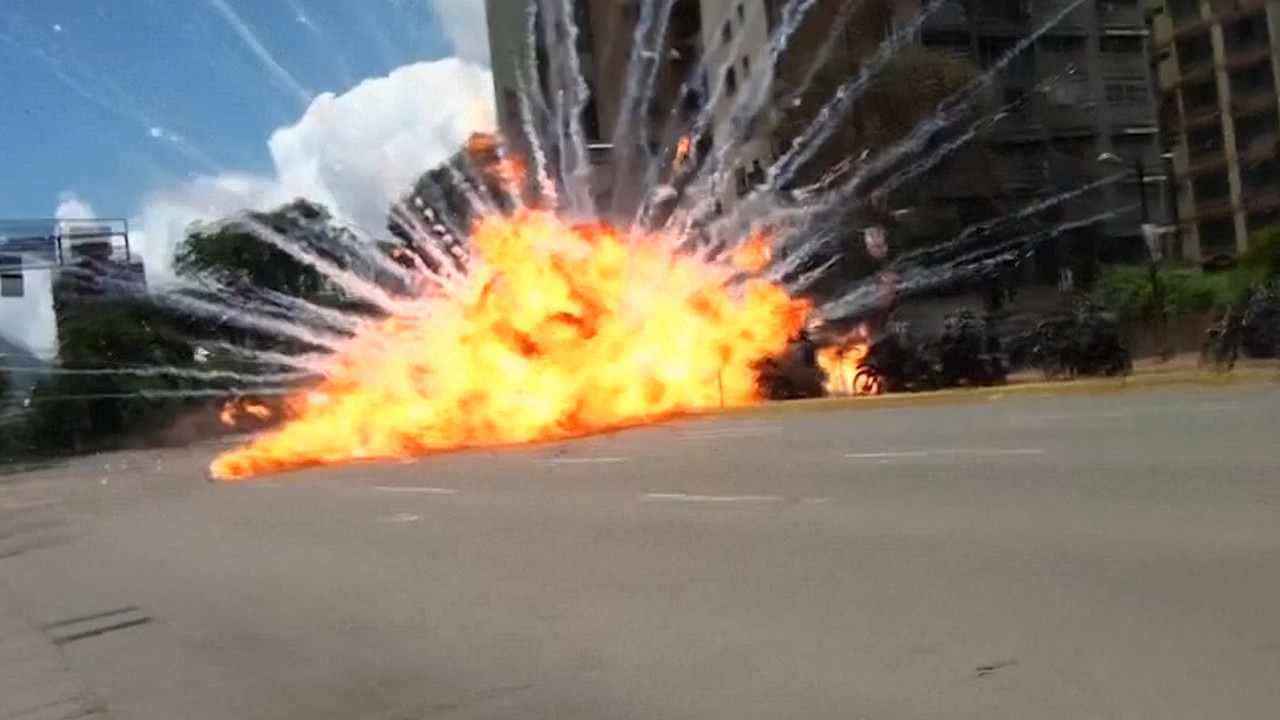At least 10 people were killed in violence in Venezuela Sunday as the government pressed ahead with hugely unpopular plans to elect a new legislative body, in a vote labelled a “sham” by Washington.The election of the National Constituent Assembly, a powerful new legislative body of 545 members which will rewrite the country’s constitution, further exacerbated the country’s spiralling political crisis, which has resulted in more than 120 deaths so far.The opposition – who boycotted the vote and did not field any candidates for the assembly – views the move as a blatant government power grab and vowed further demonstrations Monday. Meanwhile, the U.S. is reportedly mulling sanctions against Venezuela’s vital oil industry, an option analysts say would have a dramatic impact on the ailing economy. Despite widespread opposition to the vote at home and abroad, Venezuelan President Nicolas Maduro hailed the poll as a “vote for the revolution,” claiming that turn-out represented the biggest endorsement yet for the “Bolivarian revolution” begun by his predecessor and mentor, the late socialist Hugo Chavez.While authorities said 8.1 million people (about 41 percent of registered voters) took part, the opposition estimated only 2.5 million votes were cast. The head of the opposition-dominated National Assembly — an existing legislature that faces being dissolved by the new assembly — tweeted that the vote represented “the biggest electoral fraud in our history.” No independent observers were present to monitor the vote.The ballot was marred by bloodshed, as protesters defied a government ban on demonstrations and the threat of jail time if the vote was disrupted. Among those killed were two teenage protesters and an opposition leader, as well as an assembly candidate and a soldier. Senior opposition leader Henrique Capriles described the killings as a “massacre,” and called on Venezuelans to continue their protests, including demonstrations Monday and a mass rally in Caracas Wednesday, just as new members of the assembly are to be sworn in.The international community has responded with scathing condemnation, which threatens to leave the once prosperous South American nation even more isolated internationally. The U.S. State Department issued a statement Sunday condemning the vote as flawed, and promising “strong swift actions against the architects of authoritarianism,” while the U.S. ambassador to the UN, Nikki Haley, tweeted: “Maduro’s sham election is another step toward dictatorship.” The election was also condemned by the E.U., Canada, Argentina, Brazil, Colombia, and Mexico.On July 26, the U.S. slapped sanctions on 13 senior Venezuelan officials and warned that more were in the works, prompting Mexico, Colombia, and Panama to follow suit with their own sanctions against the same figures. Analysts said the U.S. sanctions were among the most effective ways of eroding support for the government among the country’s military and political elite, which have so far stood behind Maduro in the face of widespread public opposition.Further U.S. sanctions targeting Venezuela’s oil industry — the regime’s most important economic lifeline — could prove even more decisive. U.S officials told Reuters they were mulling oil sanctions that could come into effect as soon as Monday, although they would calibrate any response to avoid causing further suffering to the public in a country already used to acute shortages of essential supplies.
Despite widespread opposition to the vote at home and abroad, Venezuelan President Nicolas Maduro hailed the poll as a “vote for the revolution,” claiming that turn-out represented the biggest endorsement yet for the “Bolivarian revolution” begun by his predecessor and mentor, the late socialist Hugo Chavez.While authorities said 8.1 million people (about 41 percent of registered voters) took part, the opposition estimated only 2.5 million votes were cast. The head of the opposition-dominated National Assembly — an existing legislature that faces being dissolved by the new assembly — tweeted that the vote represented “the biggest electoral fraud in our history.” No independent observers were present to monitor the vote.The ballot was marred by bloodshed, as protesters defied a government ban on demonstrations and the threat of jail time if the vote was disrupted. Among those killed were two teenage protesters and an opposition leader, as well as an assembly candidate and a soldier. Senior opposition leader Henrique Capriles described the killings as a “massacre,” and called on Venezuelans to continue their protests, including demonstrations Monday and a mass rally in Caracas Wednesday, just as new members of the assembly are to be sworn in.The international community has responded with scathing condemnation, which threatens to leave the once prosperous South American nation even more isolated internationally. The U.S. State Department issued a statement Sunday condemning the vote as flawed, and promising “strong swift actions against the architects of authoritarianism,” while the U.S. ambassador to the UN, Nikki Haley, tweeted: “Maduro’s sham election is another step toward dictatorship.” The election was also condemned by the E.U., Canada, Argentina, Brazil, Colombia, and Mexico.On July 26, the U.S. slapped sanctions on 13 senior Venezuelan officials and warned that more were in the works, prompting Mexico, Colombia, and Panama to follow suit with their own sanctions against the same figures. Analysts said the U.S. sanctions were among the most effective ways of eroding support for the government among the country’s military and political elite, which have so far stood behind Maduro in the face of widespread public opposition.Further U.S. sanctions targeting Venezuela’s oil industry — the regime’s most important economic lifeline — could prove even more decisive. U.S officials told Reuters they were mulling oil sanctions that could come into effect as soon as Monday, although they would calibrate any response to avoid causing further suffering to the public in a country already used to acute shortages of essential supplies.
Advertisement
